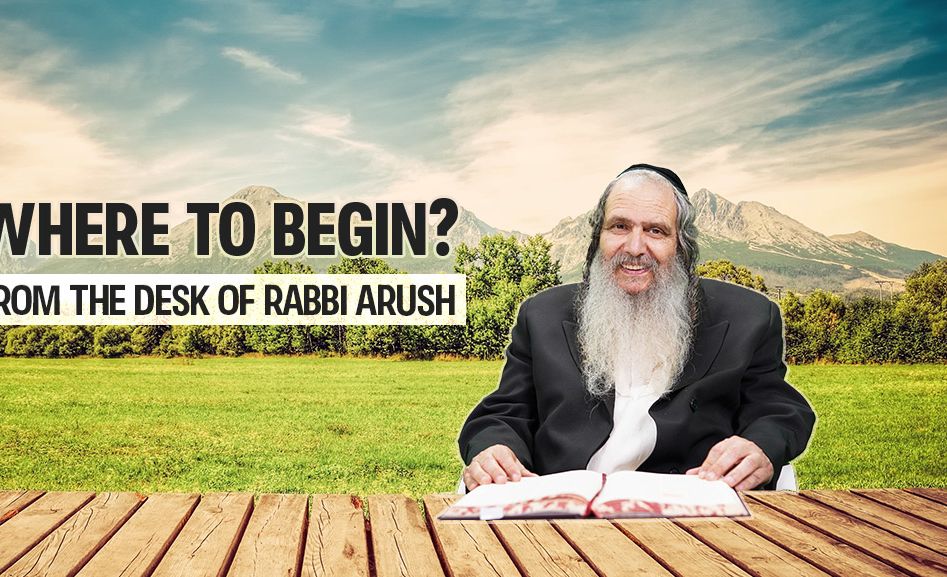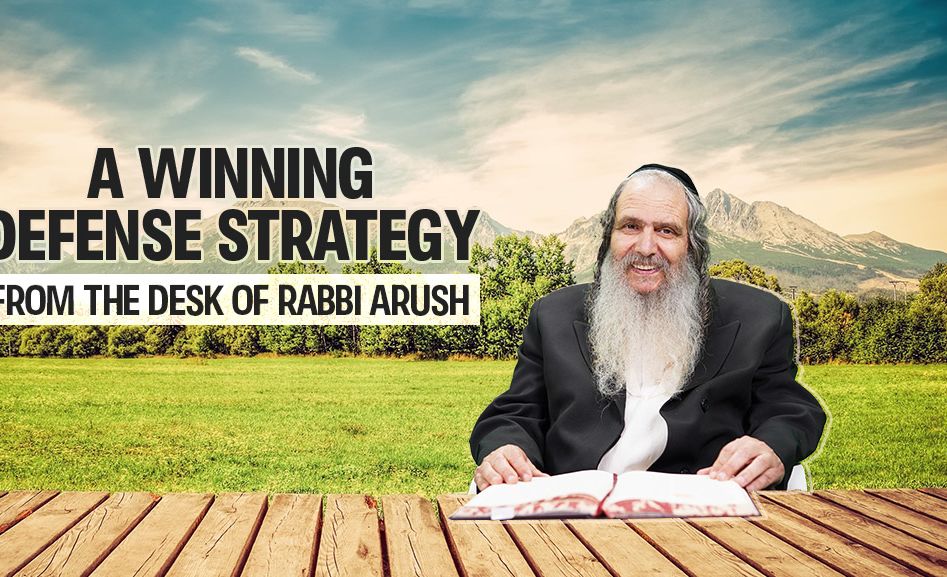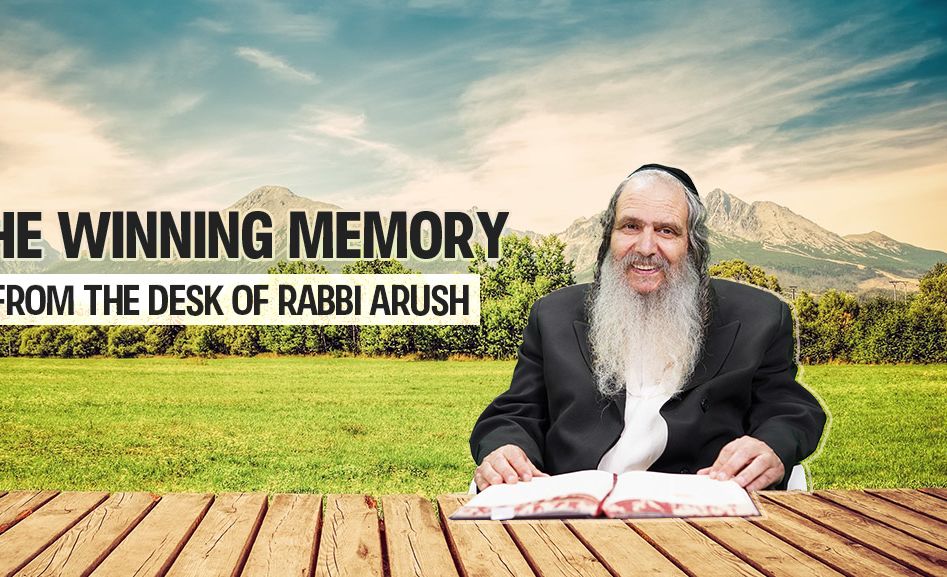
It’s Now or Never
Teshuva is more than skin deep. It is about developing a personal connection with Hashem. How does one do this? Let’s start with more mitzvah adherence and personal prayer…

I wish I were referring to Elvis Presley’s romantic hit song, but I’m not. The past few days have brought revelations that were more imminent than I had expected. Nowadays, we are on high alert in Israel. Along with this are Rav Arush’s and Rav Brody’s desperate pleas for everyone to do teshuva and return to Hashem before it’s too late. Many of us, although we might on a general level understand what they mean, really do not yet grasp the practical aspect of what they’re saying. I would like to offer some clarification.
First, I would like to discuss this whole teshuva business. It does not mean that everyone should run out and buy stick-on side curls or start wearing granny knee-highs and orthopedic shoes. No, teshuva is more than skin deep. It is about developing a personal connection with Hashem. How does one do this? There are two  basic aspects: more mitzvah adherence and personal prayer. Many people are under a big misconception when it comes to doing mitzvot. Either they don’t do them because they don’t understand the Divine reasoning behind it, or they don’t think they can accomplish much spiritually by doing just a handful of things. First of all, no one can completely understand Divine logic- are we Hashem? Who are we to think we are on Hashem’s intellectual level? Therefore, we are advised to observe the mitzvot with the understanding that we trust that these mitzvot are intended to directly benefit us in our lives. Sure, many of them are not physically comfortable, and many do go against our limited logic.
basic aspects: more mitzvah adherence and personal prayer. Many people are under a big misconception when it comes to doing mitzvot. Either they don’t do them because they don’t understand the Divine reasoning behind it, or they don’t think they can accomplish much spiritually by doing just a handful of things. First of all, no one can completely understand Divine logic- are we Hashem? Who are we to think we are on Hashem’s intellectual level? Therefore, we are advised to observe the mitzvot with the understanding that we trust that these mitzvot are intended to directly benefit us in our lives. Sure, many of them are not physically comfortable, and many do go against our limited logic.
What are we if we live our lives pursuing only physical comforts? We are no higher than an animal, whose main goal in life is to survive- nothing more and nothing less. We must ask ourselves- is this what G-d created us for? To survive? To be slaves to our progressively decaying bodies? No matter what we do, we will all end up in the spiritual realm, without our physical bodies. So what’s the point in wasting our lives making sure our temporary housing is our number one priority? Second, no one said we have to jump from not observing anything to becoming the Michael Phelps of Mitzvot. It just doesn’t work.
What do we do? The Holy Zohar states, “Open for Me an opening no wider than the eye of a needle and I will open for you the Supernal Gates.” We are not supposed to take on everything at once. Hashem knows we cannot handle that and He does not expect that of us. Like a Father with infinite patience, He wants us to move forward at our own pace, and each small step we take is rewarded with countless blessings. One of my favorite sayings that I have heard from Rabbi Brody is a Gemara which states: “Where a Ba’al Teshuva stands, a perfect Tzaddik cannot stand.” Why? Each effort that a person with little or no Jewish upbringing makes in order to come closer to Hashem is cherished more than anything. A man who never prayed in the morning has a desire to connect with Hashem- maybe he will start out with his morning blessings, and eventually he may put on tefillin. Rav Brody says the angels would give up their lofty status in Heaven just for one chance to put on tefillin! We have no idea what spiritual worlds we are creating with each small action. If a woman doesn’t light Shabbat candles, she should consider doing this easy and incredibly spiritual mitzvah. Shabbat candles bring in the energy and blessings of Shabbat to the home and the entire family. Whatever level of observance you are on, there is always room to do something more. So take it one step at a time, and remember that your intention is to come closer to Hashem with each action. I have seen in my life that I have been rewarded infinitely more than the effort I had put forth in becoming more observant. It’s like a parent who rewards their child with a cookie for cleaning up his room. Instead, this Parent gives His child a cookie, money, a house, one or two (or three cars), and most importantly, infinite spiritual blessings with each effort made.
Let’s move on to the next aspect of teshuva- one which is greatly misunderstood. Many people think teshuva, or repentance, involves self-persecution in its many forms. They think they must feel guilty over their mistakes, whether intentional or not, and they proceed to beat themselves up over it. They think they must fast or deny their bodies certain comforts for many days. This is not teshuva! Thanks to the groundbreaking teachings of Rav Arush, the real meaning and description of teshuva can finally be understood by everyone. In The Garden of Gratitude, Rav Arush explains that there are two steps to teshuva. The first step is teshuva from fear. This is not a step that is recommended by the sages. It is a natural step in the progression of becoming closer to Hashem. At first, a person is unfamiliar with the concept of Hashem being actively involved in his life. Therefore, he is uncomfortable admitting his past mistakes. The relationship between man and G-d doesn’t feel natural yet. Furthermore, when one starts to contemplate Hashem’s greatness and omnipotence after never having done so his entire life, he can certainly feel awe and fear of his Creator. This is natural and normal.
However, we must realize that this is not the level we want to stay on. It is only a starting point, and I can’t stress this enough. Even today, there are many Ultra-Orthodox Jews who think that this type of teshuva is what Hashem wants. Unfortunately, they are misled. In his amazing CD, “Teshuva From Love”, Rav Brody explains the spiritual benefits of doing teshuva with the desire to become closer to Hashem. First, we must realize that our desire to connect should be like the desire a child has to be close to his parents. Do his parents have an even greater desire for a close connection? They sure do! Imagine what happens when we, Hashem’s children, finally opening our mouths and saying, “Hashem, I want to be close to you.” Like an infinitely loving parent, Hashem swoops us up in His Arms and whispers in our ears, “My darling child, this is all I ever wanted from you.” If only we could see the love that our Father has for us. With continued practice, this type of teshuva will begin to feel more natural. Soon enough, you can even feel that Hashem really does love you and wants the best for you! All you need to do is talk to Him.
Hitbodedut, or personal prayer, is the secret to developing the close connection with Hashem. Rav Arush recommends setting aside one hour a day to talk to your Father. Tell Him how your day was, what difficulties you had, what accomplishments you made. Ask Him for help with the challenges you just can’t seem to overcome- whether it’s anger, smoking, lust, whatever. Whatever you do, don’t persecute yourself! Hashem let you make mistakes in order that you have the desire to come closer to Him. What would happen if someone did everything perfectly? His nose would be so high in the air, no one would be able to stand him! He would never ask for help, and would probably be the most arrogant person on earth! Our failures are good in the big picture; they humble us and remind us that we are human. We are not meant to be perfect. If you haven’t yet read The Garden of Gratitude, now is the time. Rav Arush informed us that the gates of teshuva are closing soon, and we must immediately re-prioritize our lives. So as Rav Brody says, “Forget about the new jewelry and new furniture. Return to Hashem with all of your heart and you will see tremendous blessings in your life!”










10/03/2011
Fear is wisdom It's not true that fear is not recommended by the sages. Or Rabbi Nachman. The first line in the siddur, instituted by the sages, after "modeh ani" thanking Hashem for giving us back our souls is: "Reishit Chochmah Yirat Ado-nay" : "The beginning of wisdom is the fear of Hashem". The first thing we say every day!!! Only when one fears Hashem can one feel true shame for what one has done. And Rabbi Nachman teaches that without fear of Hashem teshuva is impossible, even if it is the lowest level.
10/03/2011
It's not true that fear is not recommended by the sages. Or Rabbi Nachman. The first line in the siddur, instituted by the sages, after "modeh ani" thanking Hashem for giving us back our souls is: "Reishit Chochmah Yirat Ado-nay" : "The beginning of wisdom is the fear of Hashem". The first thing we say every day!!! Only when one fears Hashem can one feel true shame for what one has done. And Rabbi Nachman teaches that without fear of Hashem teshuva is impossible, even if it is the lowest level.
10/03/2011
Rebbe Nachman’s Teachings I feel it necessary to remind the readers that all the points made so eloquently here yet are attributed solely to Rabbis Arush and Brody are indeed the holy teachings of Rabbi Nachman of Breslev, that in turn they selflessly dedicate their lives to spread. Our esteemed Rabbis are surely the tireless messengers, yet not the originators of the teachings. I think it's important to make this distinction. I'm sure they would agree wholeheartedly.